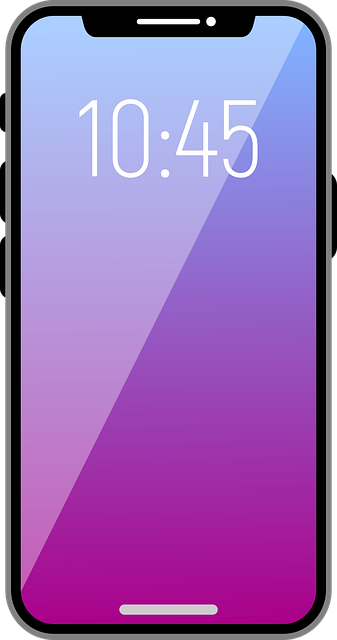In Canada and North Carolina, strict "Do Not Call" laws protect consumers from unwanted telemarketing. US businesses targeting Canadians must comply with these regulations to avoid hefty fines and damage to their reputation. Specialized lawyers like Do Not Call Lawyers NC or Attorneys are crucial for navigating these legalities and ensuring effective, lawful marketing strategies when crossing borders. Businesses should use opt-in methods and targeted advertising to respect consumer choices and stay compliant.
“In today’s digital landscape, cross-border marketing is essential for global reach. However, navigating different regulations can pose challenges, especially regarding do-not-call laws. This article explores the intricate web of Canadian do-not-call rules and their impact on US businesses, highlighting key differences with US regulations. We delve into effective marketing strategies while adhering to these restrictions and emphasize the importance of consulting a specialized Do Not Call Lawyer NC or Do Not Call Attorney NC. Understanding legal implications is crucial for businesses aiming to thrive in both markets.”
Understanding Do Not Call Laws in Canada and Their Impact on US Businesses
In Canada, “Do Not Call” laws are designed to protect consumers from unwanted telemarketing calls and messages. These regulations significantly impact cross-border marketing strategies for US businesses targeting Canadian customers. Given that North Carolina has its own “Do Not Call” list and laws, specifically catering to residents who wish to opt-out of such communications, understanding these rules is crucial for businesses operating in both nations.
For US companies reaching out to Canadians, it’s essential to ensure compliance with Canadian and North Carolina’s “Do Not Call” regulations. This involves obtaining explicit consent from recipients and maintaining accurate records of their preferences. A single violation can result in substantial fines and damage to a company’s reputation. Thus, hiring a lawyer specializing in “Do Not Call” laws, like a Do not call Lawyer NC or Do not call Attorney NC, becomes pertinent for businesses aiming to navigate these legalities effectively and avoid potential pitfalls when marketing across borders.
Key Differences Between Canadian and US Do Not Call Regulations
Canada and the United States have distinct regulations regarding the do not call lists, which significantly impact cross-border marketing strategies. One key difference lies in the enforcement and opt-out mechanisms. In Canada, the Do Not Call List is administered by the Canadian Radio-Television and Telecommunications Commission (CRTC), which allows individuals to register their phone numbers online or via text message. The list is comprehensive, covering both landlines and cell phones, and operates on an opt-in basis, meaning businesses must obtain explicit consent from consumers before making outbound calls.
In contrast, the US do not call regulations are a federal law enforced by the Federal Trade Commission (FTC). While the opt-out mechanism is similar, allowing consumers to register their numbers with the National Do Not Call Registry, the Canadian approach offers more control to individuals as it provides additional provincial and territorial opt-out options. Additionally, North Carolina, like many US states, has its own do not call laws that further restrict telemarketing practices, requiring specific compliance measures from businesses targeting residents of this state, including do not call lawyer NC firms or do not call attorneys NC.
Cross-Border Marketing Strategies Amidst NC's Do Not Call Restrictions
In today’s digital age, cross-border marketing strategies have become increasingly vital for businesses aiming to expand their reach. However, navigating the legal landscape, particularly regarding privacy and consumer protection laws, is essential. One such area of concern in North Carolina (NC) is the ‘Do Not Call’ list, which has significant implications for marketers across borders. Businesses must exercise caution when contacting potential clients in NC to avoid unintended legal repercussions.
Marketing professionals can employ several strategies to adapt to these restrictions. First, ensuring compliance with local laws by consulting a lawyer specializing in ‘Do Not Call’ regulations in NC is crucial. These legal experts can guide businesses on how to respect consumer choices while still effectively promoting their services. Additionally, utilizing consent-based marketing approaches, such as opt-in email campaigns and targeted social media advertising, allows companies to reach audiences in NC without violating any restrictions. By combining these tactics with a deep understanding of the local market, cross-border marketers can successfully engage potential clients while adhering to North Carolina’s ‘Do Not Call’ laws.
Navigating Legal Implications: Finding a Lawyer for Do Not Call North Carolina Issues
Navigating legal implications when dealing with cross-border marketing in North Carolina requires a thorough understanding of the area’s “Do Not Call” laws and the potential consequences for non-compliance. If your business operates in both Canada and the US, it’s crucial to ensure that your marketing practices adhere to each jurisdiction’s regulations. One effective step is to consult a specialized do not call lawyer NC or an attorney focused on privacy law. These legal professionals can provide guidance tailored to North Carolina’s specific requirements, helping businesses craft strategies that respect consumer rights while enabling effective marketing.
Engaging the services of a do not call law firm NC ensures access to expertise in crafting and implementing opt-out mechanisms, managing compliance, and mitigating potential penalties. With their help, companies can navigate the complex landscape of privacy laws, ensuring their cross-border marketing efforts remain legal and ethical. This proactive approach is vital to protecting your business’s reputation and avoiding costly legal battles.





